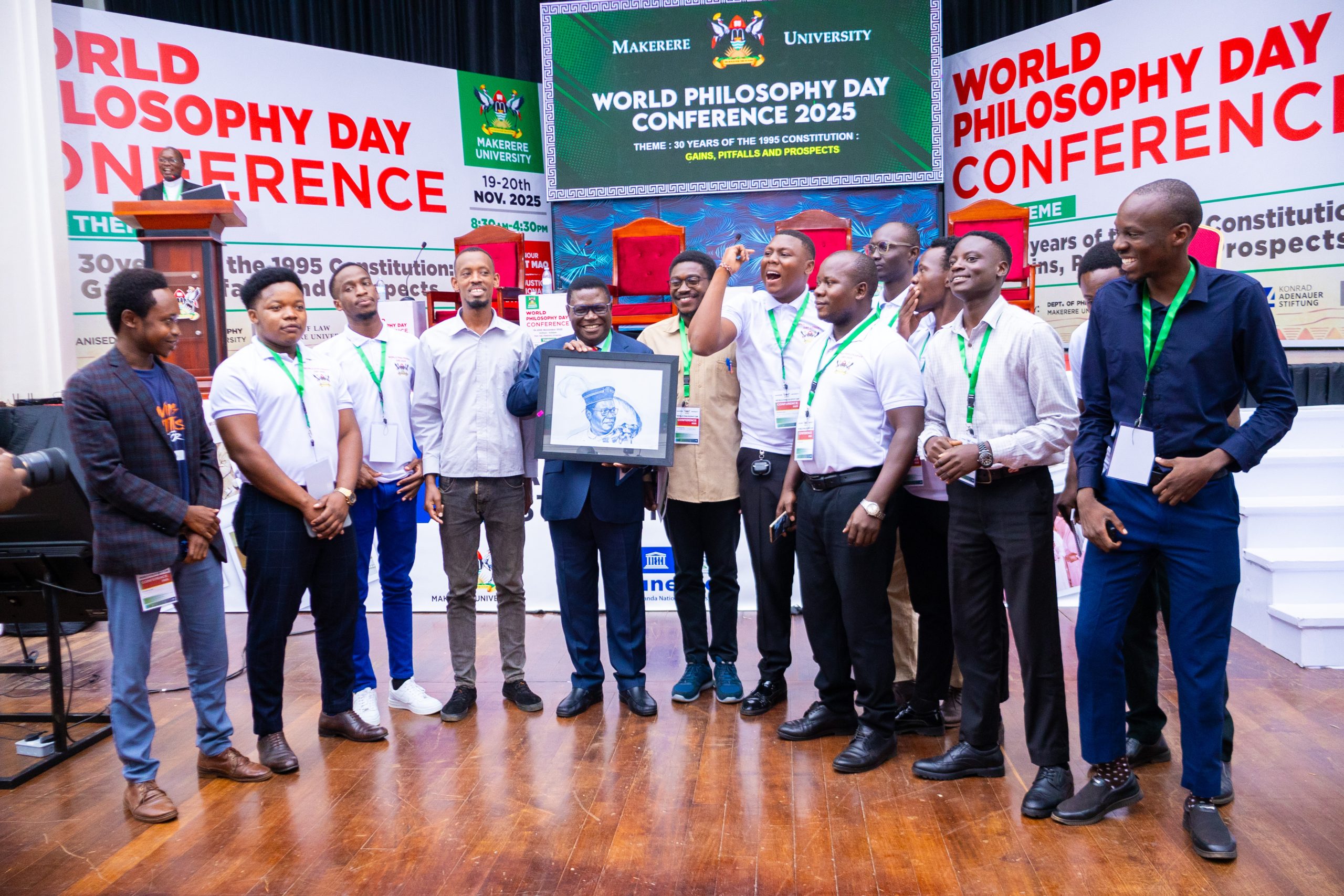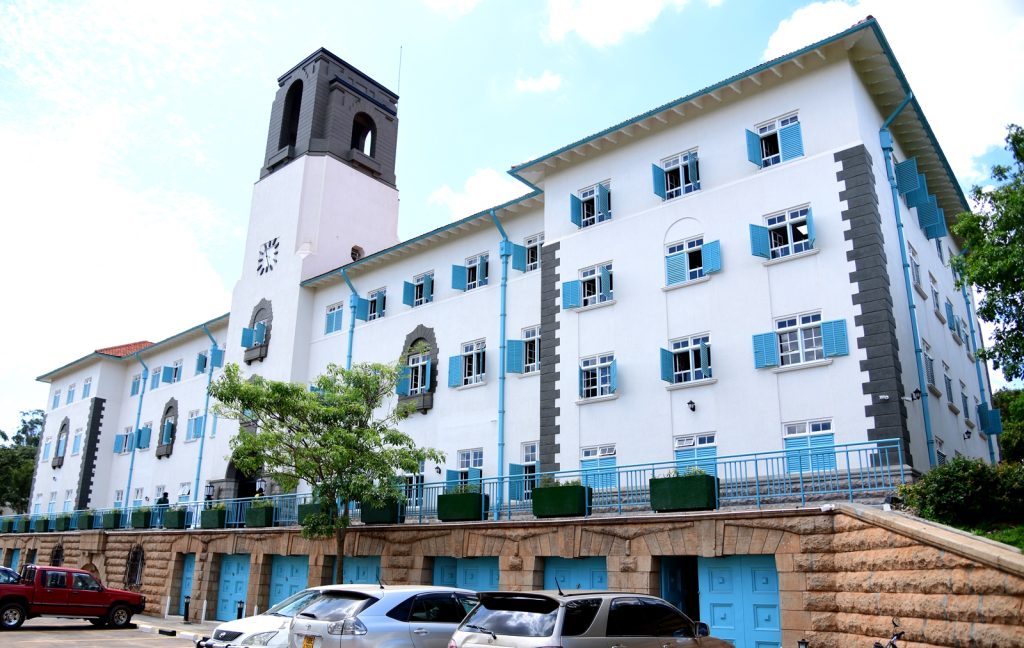Mao Urges African States to Institutionalise Accountability in Governance
Minister of Justice and Constitutional Affairs, Hon. Nobert Mao, has urged Uganda and other African countries to adopt governance systems that firmly entrench accountability and civil liberties at all levels of leadership.
Mao made the call on Thursday while presiding as Chief Guest at the World Philosophy Day celebrations held at Makerere University. The two-day conference, running from 19th–20th November 2025, was organized by the Department of Philosophy in collaboration with the School of Law, UNESCO and the Konrad Adenauer Stiftung under the theme: “30 Years of the 1995 Constitution: Gains, Pitfalls and Prospects.”
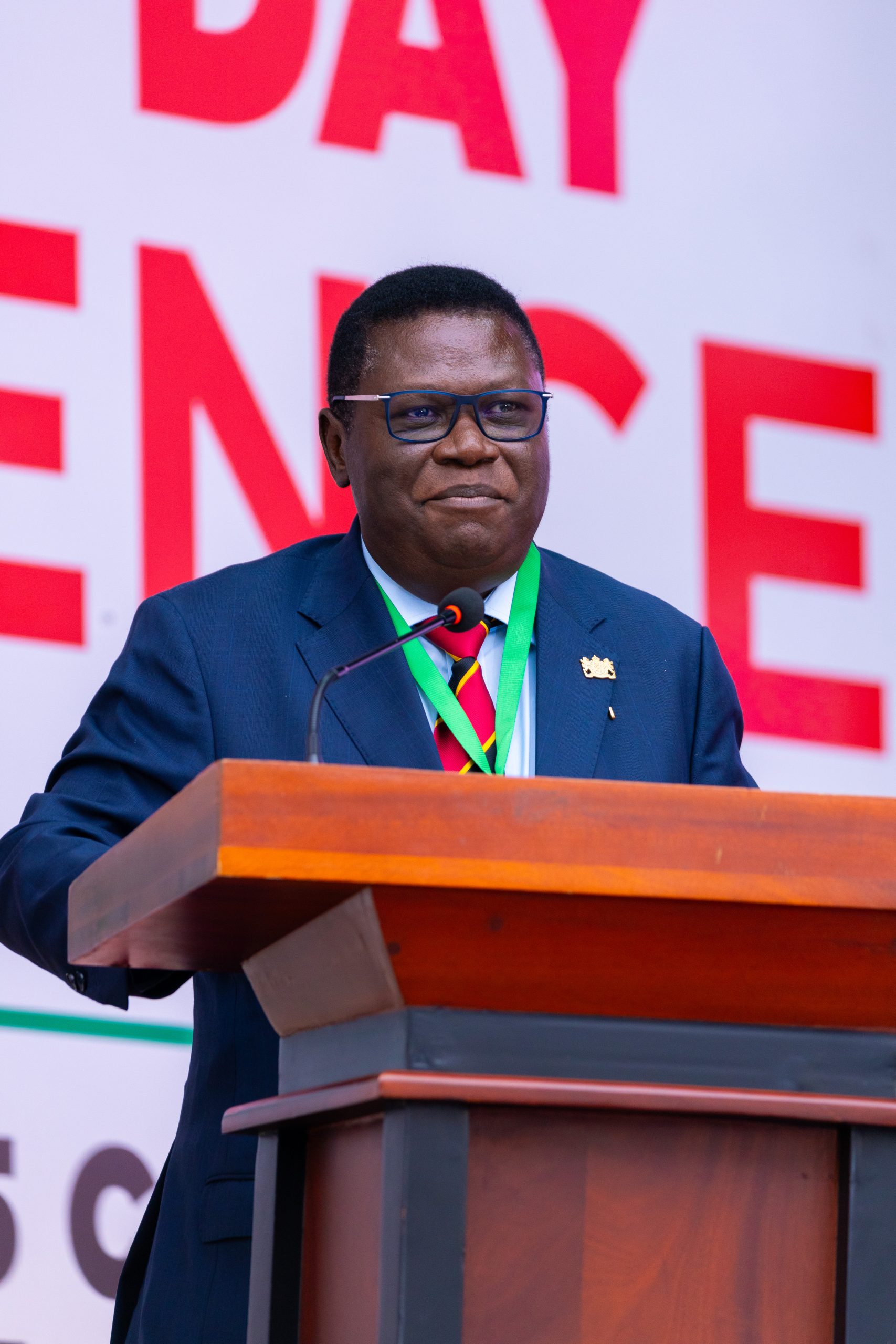
The event, hosted in a hybrid format at the Makerere Main Hall, featured academic papers, screenings of Constituent Assembly debates, panel sessions with drafters of the Constitution, creative performances and exhibitions on Uganda’s constitution-making journey.
Mao warned that Africa’s current political systems risk turning leadership terms into ritualistic cycles where leaders serve five-year mandates without meaningful public accountability. He argued that genuine democracy must be tied to transparent governance, citizen oversight and an environment where civil liberties are respected.
“We need to balance accountability and civil liberties with national unity and stability,” Mao said, dismissing claims that demanding civil liberties threatens peace. “That is a false dichotomy. A government can be both accountable and stable.”
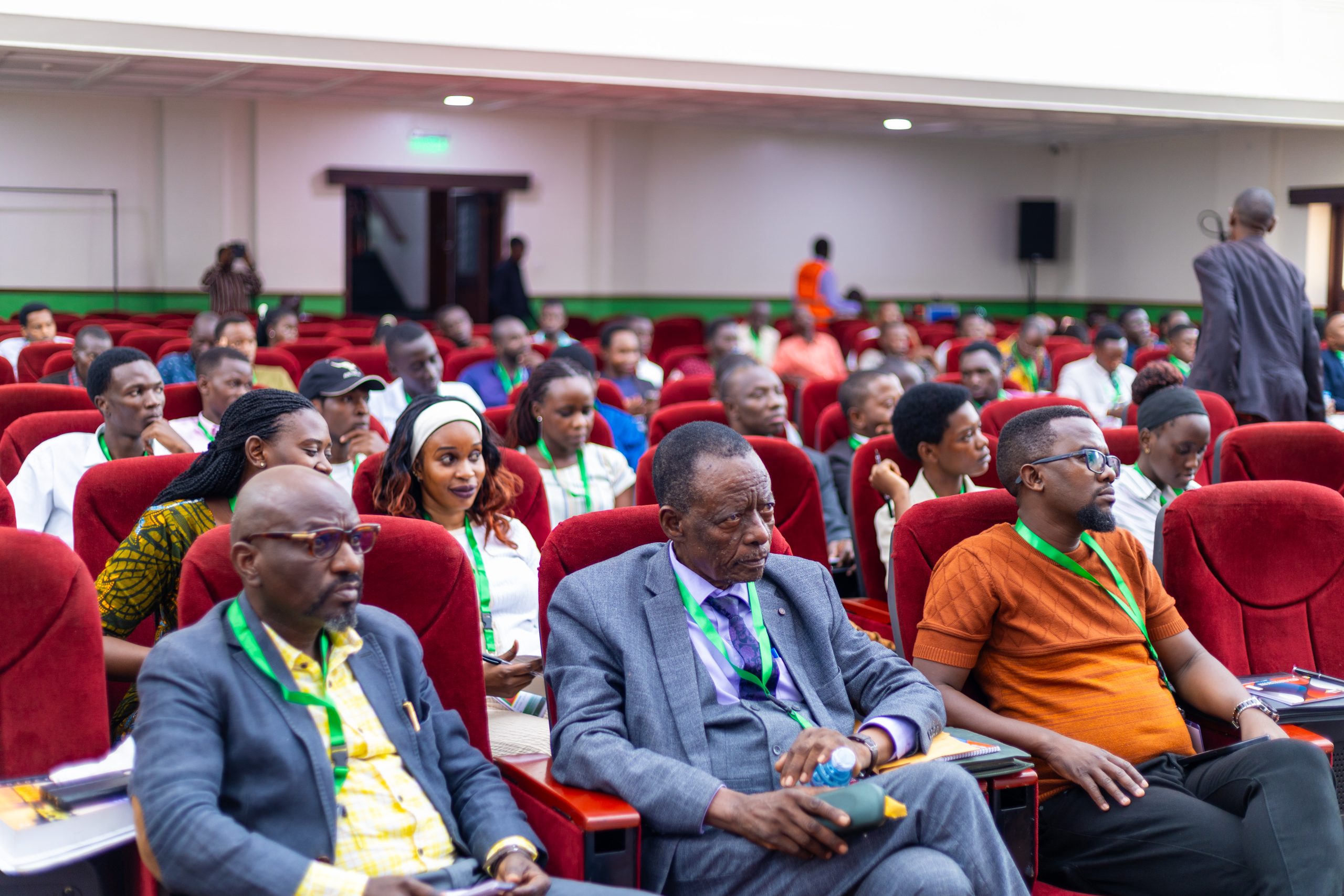
He stressed that Ugandans must remain free to speak openly about governance failures, injustices and past atrocities, noting that national healing requires courage to confront uncomfortable truths. He also cautioned political actors against manipulative tribal politics, calling for a shift toward consensual and tolerant political engagement.
Mao challenged universities to take the lead in deepening political discourse, saying academia must dissect complex national issues and guide public understanding. “If there is one place where citizens should discuss even the most contentious subjects, it is a university,” he said, praising Makerere University for fostering open inquiry.
Reflecting on the 30-year journey of the 1995 Constitution, Mao noted that while it remains “an infant,” it has endured significant tests, including violations of land rights and widespread public concerns about inadequate protection of marginalized groups. However, he welcomed the judiciary’s role in striking down unconstitutional provisions in laws such as the Police Act and the UPDF Act.
Looking ahead, Mao emphasized that the real test of Uganda’s constitutionalism will be the country’s ability to achieve a peaceful transition of political power — a milestone he described as crucial for democratic maturity.
He concluded by urging citizens to uphold their civic duty in shaping political culture across Uganda and the continent, saying: “Citizens have an obligation to shape the minds of those who participate in politics.”
VC Hails Makerere’s Historic Role in Shaping Uganda’s Constitutional Journey
Delivering the Vice Chancellor’s message on behalf of Prof. Barnabas Nawangwe, Prof. Helen Nambalirwa Nkabala said the university was proud to host the commemoration under the timely theme, “30 Years of the 1995 Constitution: Gains, Pitfalls and Prospects.” She emphasised that the gathering provides an essential platform for citizens, scholars and practitioners to interrogate one of the most significant instruments in Uganda’s governance architecture.
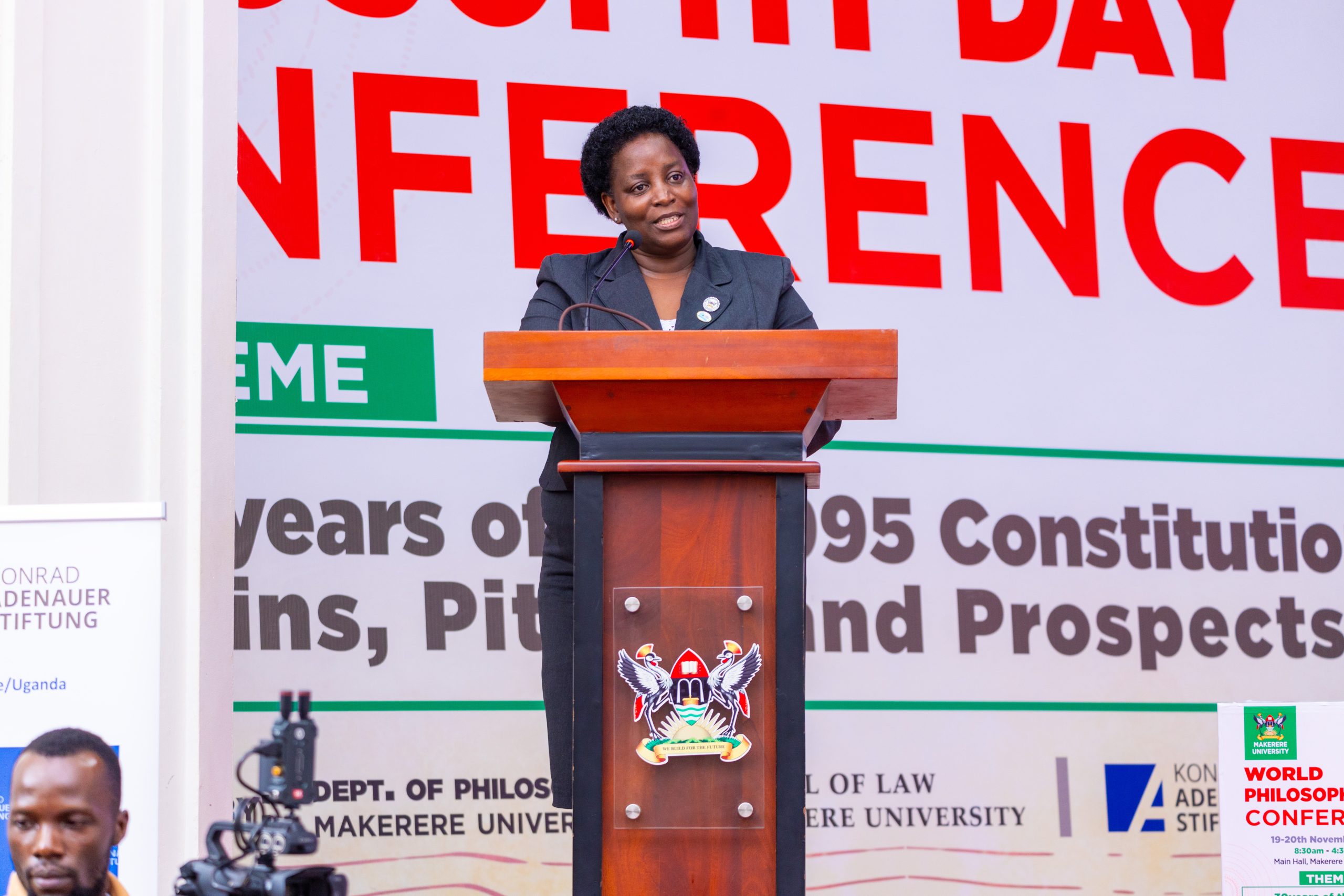
Prof. Nkabala conveyed the Vice Chancellor’s appreciation for the interdisciplinary nature of the conference, which brings together academics, constitutional drafters, philosophers, legal scholars, creatives and the general public for collective reflection. She noted that the 1995 Constitution remains central to Uganda’s political, social and economic landscape, and that 30 years on, the country stands at a critical juncture to assess its relevance and durability.
Highlighting Makerere University’s indispensable role in shaping Uganda’s constitutional evolution, she recalled that several of the nation’s most influential constitutional thinkers were Makerere academics. These include Prof. Frederick Ssempebwa, Dr. Dan Mudoola, Prof. Phares Mutibwa, Mwambusya Ndebesa and Prof. James Kigongo, all of whom made direct contributions to the crafting of the 1995 Constitution.
Their involvement, she said, reflects the university’s longstanding commitment to national development, political thought and ethical leadership.
According to the Vice Chancellor, Makerere continues to advance constitutional scholarship through teaching and research in human rights, ethics, political philosophy, critical thinking and governance. The School of Law, Prof. Nkabala noted, remains an anchor in nurturing legal minds through robust constitutional law training, shaping professionals who contribute directly to Uganda’s governance processes.
She thanked UNESCO and the Konrad Adenauer Stiftung for supporting the event and for their continued partnership with Makerere in strengthening philosophical inquiry, democratic governance and academic freedom. The Vice Chancellor also commended the organising committee for assembling a rich programme featuring academic papers, screenings of Constituent Assembly debates, exhibitions and reflective performances.
The Constitution is a Document of Life- Prof. Helen Nkabala
Speaking in her own capacity as Principal of the College of Humanities and Social Sciences (CHUSS), Prof. Nkabala praised the Department of Philosophy for sustaining intellectual vibrancy within the college. Describing the department as a “beehive,” she noted that it had already hosted three major reflective events this year—each aimed at deepening national dialogue on governance, ethics and social cohesion.
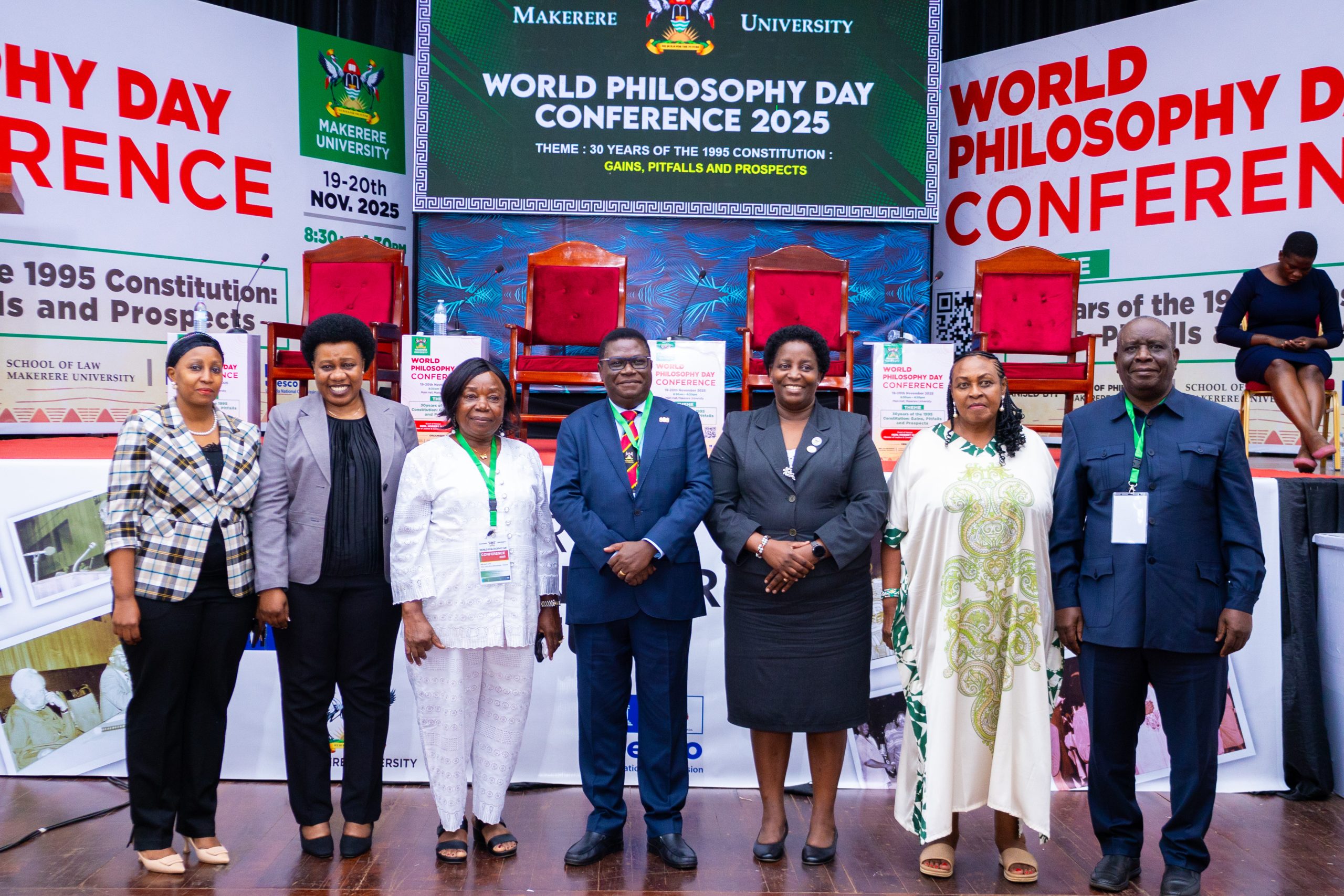
She reaffirmed the value of the humanities in shaping societies, especially at a time when they face diminishing global attention. She said UNESCO and Konrad Adenauer Stiftung had played an invaluable role in elevating philosophical and humanities-based conversations that influence national decision-making.
Referencing Jawaharlal Nehru, Prof. Nkabala reminded participants that a constitution is “a document of life” whose meaning, strength and sanctity must be tested continually through informed debate, societal engagement and scholarly critique.
She argued that reflecting on 30 years of Uganda’s Constitution requires examining both its successes and limitations, acknowledging that age brings opportunities for wisdom but also exposes emerging challenges.
Prof. Nkabala further applauded Makerere management for providing space and institutional support for critical conversations, noting that such platforms ensure that universities remain central to shaping national identity, governance and collective aspirations.
Academics Must Lead Renewal of Uganda’s Constitution Amid Weakening Checks and Balances- Dr. Zahara Nampewo
Delivering remarks on behalf of the Dean of the School of Law, Deputy Dean Dr. Zahara Nampewo emphasized that constitutions are more than legal documents—they are ideological and political texts that rely on the will of the state for enforcement.
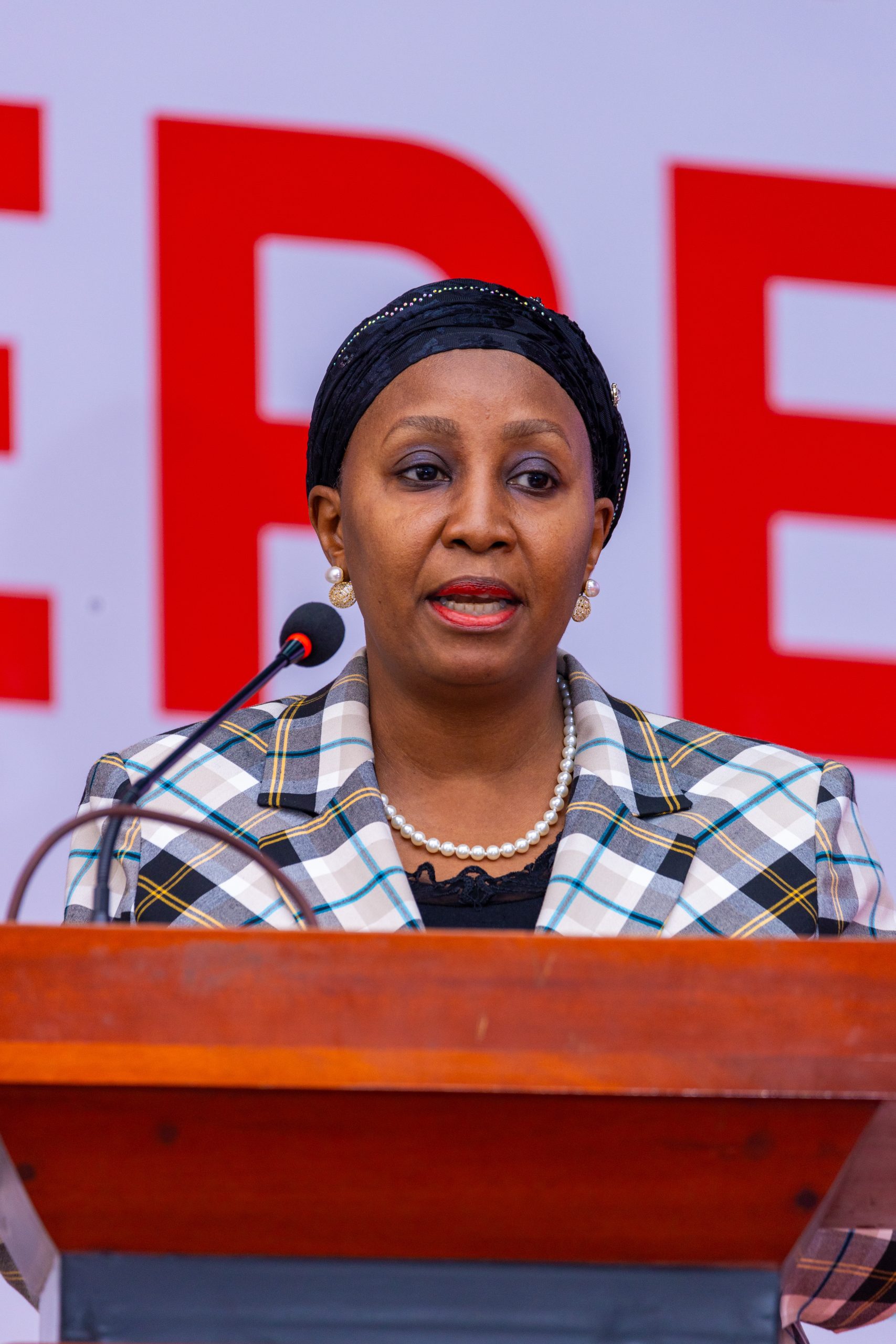
“Constitutions are not just legal documents. They are ideological and political texts. And therefore they are only as strong as the will of states to enforce their provisions,” she said.
She observed that Uganda’s Constitution has undergone numerous amendments that have weakened its original balance of power and checks and balances, undermining guarantees such as equality, democracy, social justice, and progress.
“Today, however, it has undergone the surgical knife a number of times with the result that the balance and distribution of power…have in reality been emasculated,” Dr. Nampewo said.
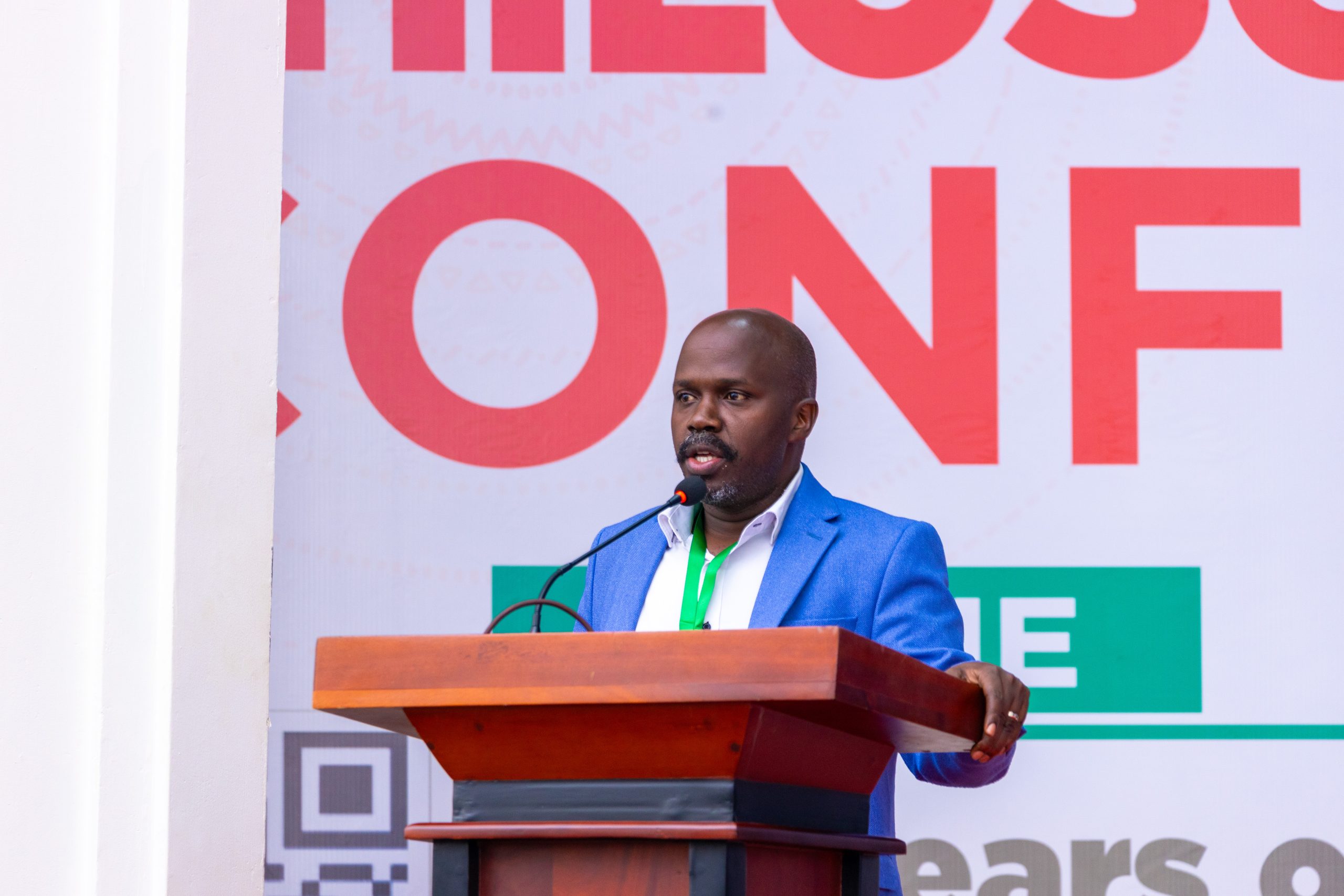
The Deputy Dean urged scholars to use their expertise to strengthen the Constitution and foster a culture of transformative and progressive constitutionalism. “As academia, we have a social function to contribute to its enforcement and strengthening because the past is never past,” she stated.
She also cited historical lessons, referencing George Washington’s caution on constitutional amendments: “Though Congress had the power to amend the Constitution, this was a power that should be used sparingly and only in the clearest of cases.”
Dr. Nampewo concluded with a call for collective action: “Alone, we are fragile, like butterfly wings. But when we flap those wings all together, that’s when we make a storm.”
Philosophical Reflection Central to Evaluating Uganda’s Constitutional Progress- Dr. Dickson Kanakulya
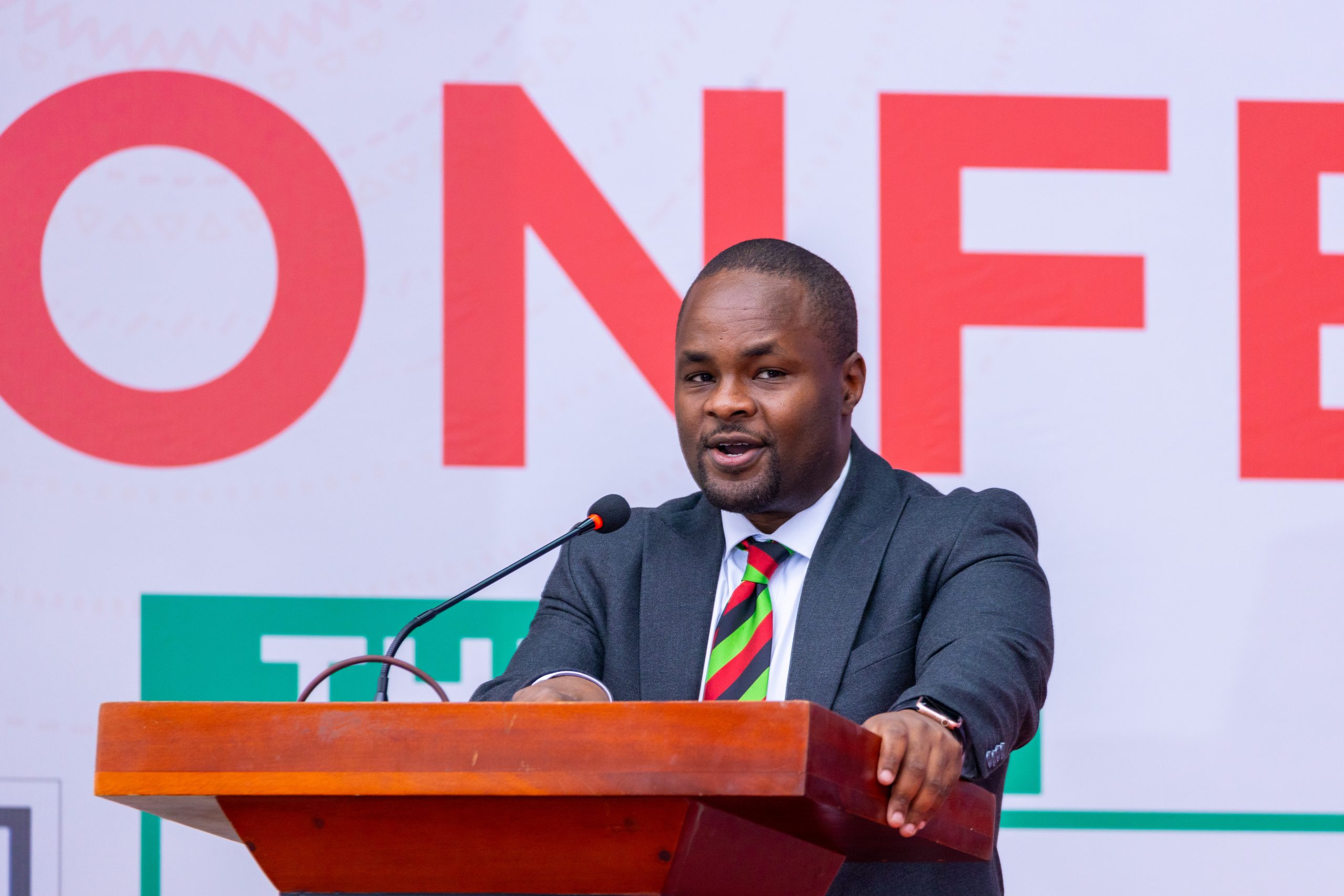
Dr. Dickson Kanakulya, Head of the Department of Philosophy, highlighted the philosophical and jurisprudential roots of constitutionalism, stressing that the 1995 Constitution emerged to address post-colonial challenges such as poor governance, poverty, and weak social cohesion.
“The 1995 Constitution was made purposely to address the challenges Uganda faced…including issues of bad governance, poverty, poor or weak social cohesion among others,” he said.
Dr. Kanakulya traced constitutional ideas to classical philosophy, noting the ongoing debate between Plato, who argued society should be led by virtuous leaders, and Aristotle, who insisted that good laws shape good citizens. “Aristotle observed that good laws make good men. While Plato argued that good men make good laws and good policies,” he explained.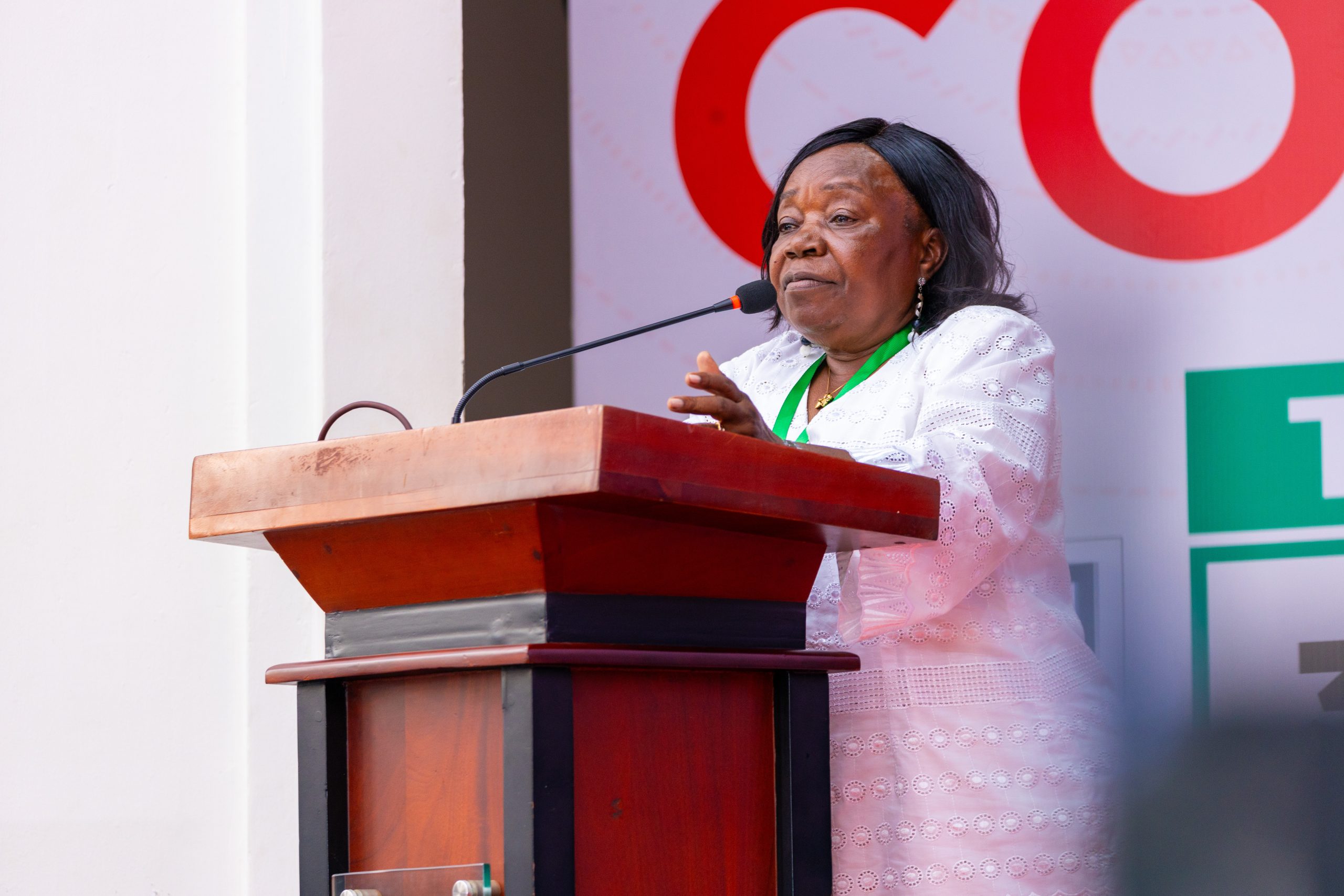
He described the conference as a platform for critical assessment of the Constitution’s 30-year journey. “This conference gives us the opportunity to make a critical assessment of how far we have gone for the last 30 years. Obviously there are gains, there are challenges, there are prospects and we need to take stock of all these,” he said.
Dr. Kanakulya also highlighted the importance of collaboration, praising UNESCO, the Konrad Adenauer Stiftung, Makerere University leadership, and faculty for supporting the event. “This collaboration between the School of Law, Department of Philosophy and Conrad plus UNESCO is a very welcome growth and development…and we want to thank their generous support, both moral and financial,” he said.
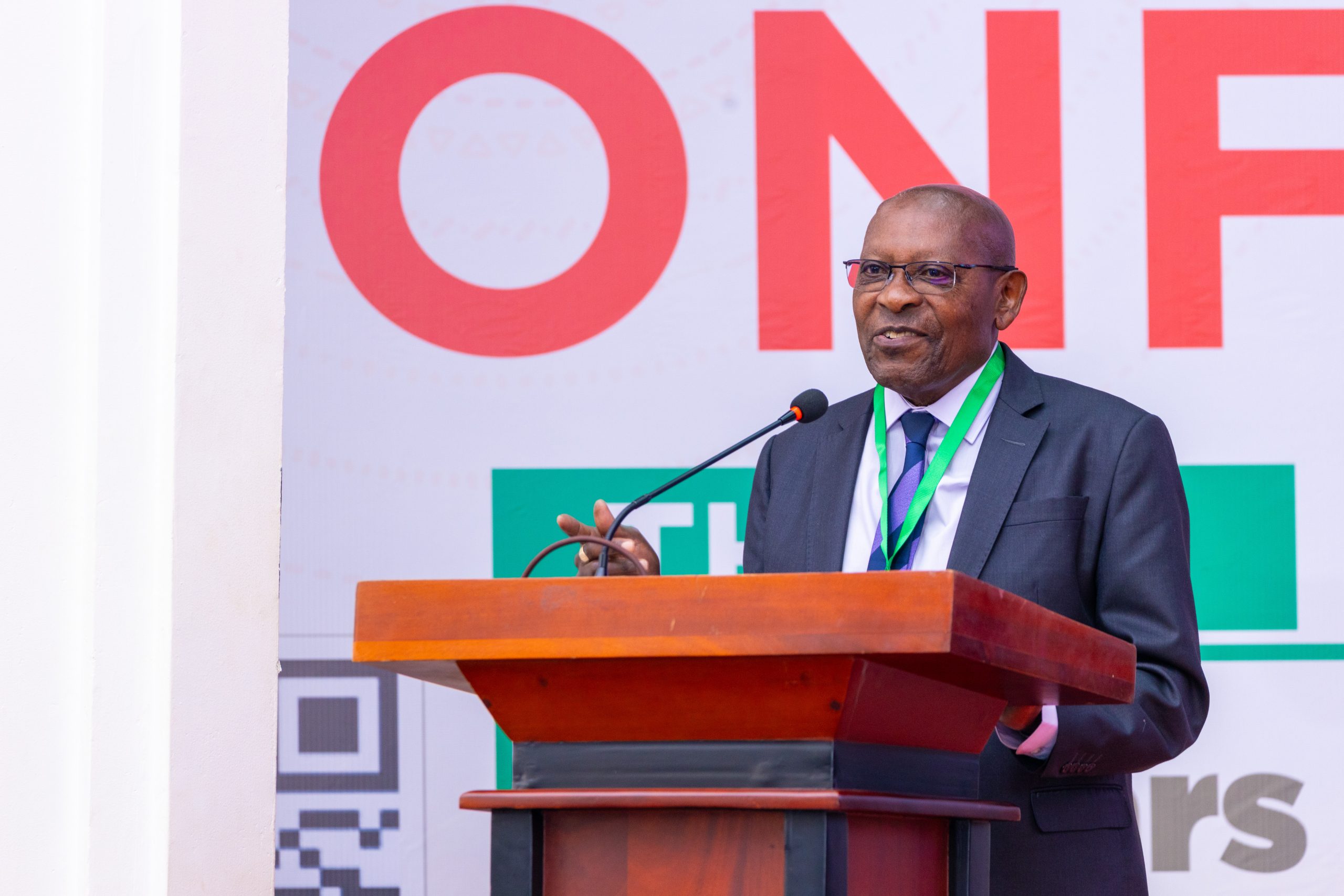
He conveyed the commitment of the School of Liberal and Performing Arts to fostering critical thinking and liberal ideas: “The School of Liberal Performing Arts is committed to shape the minds of men today. We are a liberal school and we allow liberal thinking.”
Constitutional Drafters and Constitutional Assembly Members give context
A Panel Discussion comprised of Prof. Fredrick Ssempebwa, Hon Hope Mwesigye and Hon. Loice Biira Bwambale provided context to the drafting and promulgation of the 1995 Constitution. Prof. Ssempebwa was a member on the Uganda Constitutional Commission which consulted the population and made proposals for inclusion in the 1995 Constitution. Hon. Mwesigye and Hon. Bwambale were Constitutional Assembly delegates.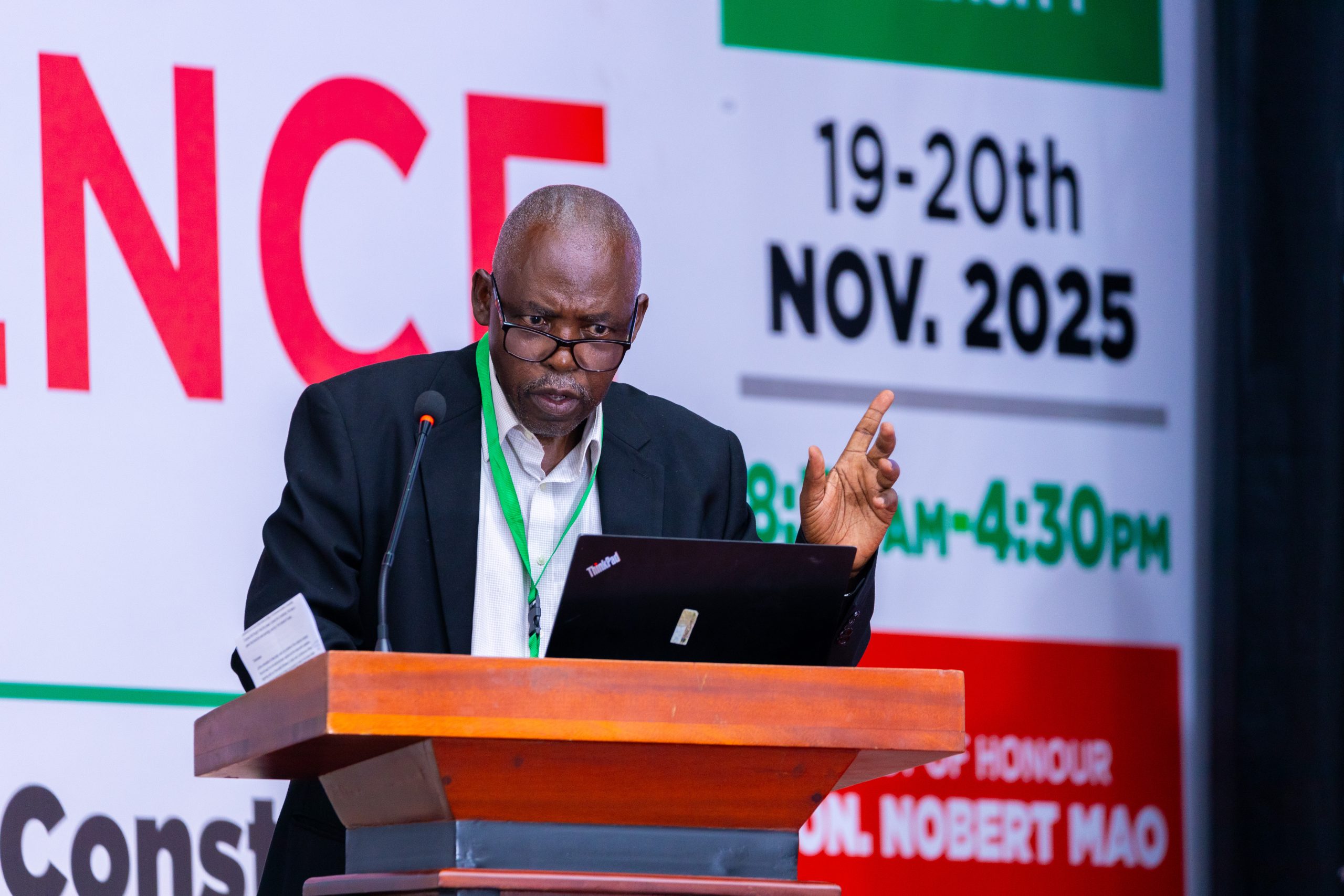
In their presentations and plenary discussion, the following issues were highlighted: 1. The 1995 Constitution was good if it had been implemented in letter and spirit 2. the presidency was given a lot of power, however consensus had been reached that checks and balances had been provided to check the power. Unfortunately, Parliament which was entrusted with an oversight role to implement the checks and balances has not delivered; 3. Whatever is included in a constitution to entrench it, the leadership in government and their values determine whether it works or not; 4. The general population including members of Parliament have not read the constitution, all this arising from poor civic education; 5. The Electoral Commission and Human Rights Commission were tasked to handle Civic Education of the population, this hasn’t been done; 6. Political goodwill from the lowest levels of government is lacking. Goodwill of government determines whether a constitution remains intact without unnecessary amendments. 7. Academia and research institutions should provide critique when things aren’t right.
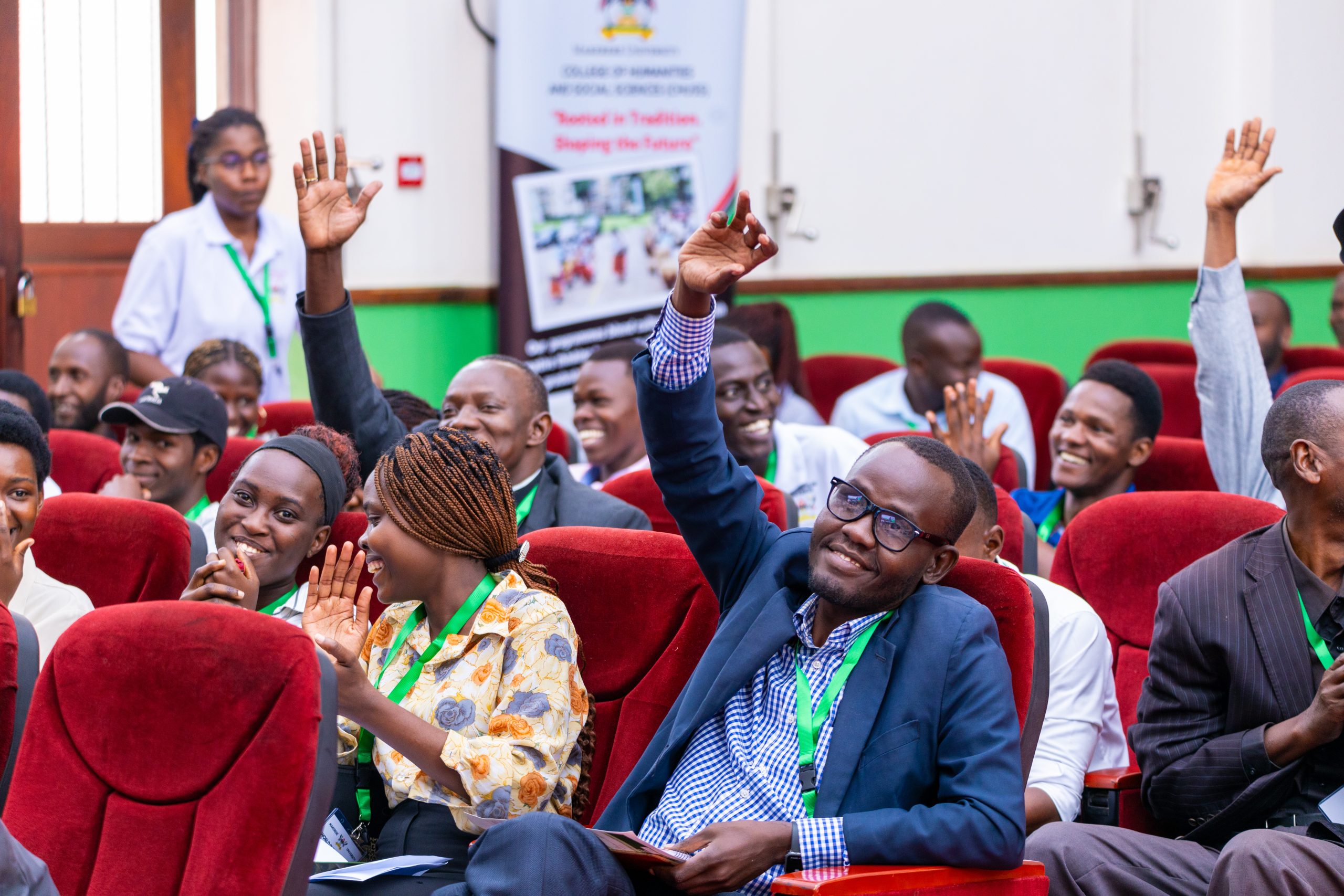
The World Philosophy Day conference continued over the next days with panel discussions, academic papers, and exhibitions aimed at deepening understanding of Uganda’s constitutional framework and inspiring dialogue on ethical leadership, governance, and societal transformation.
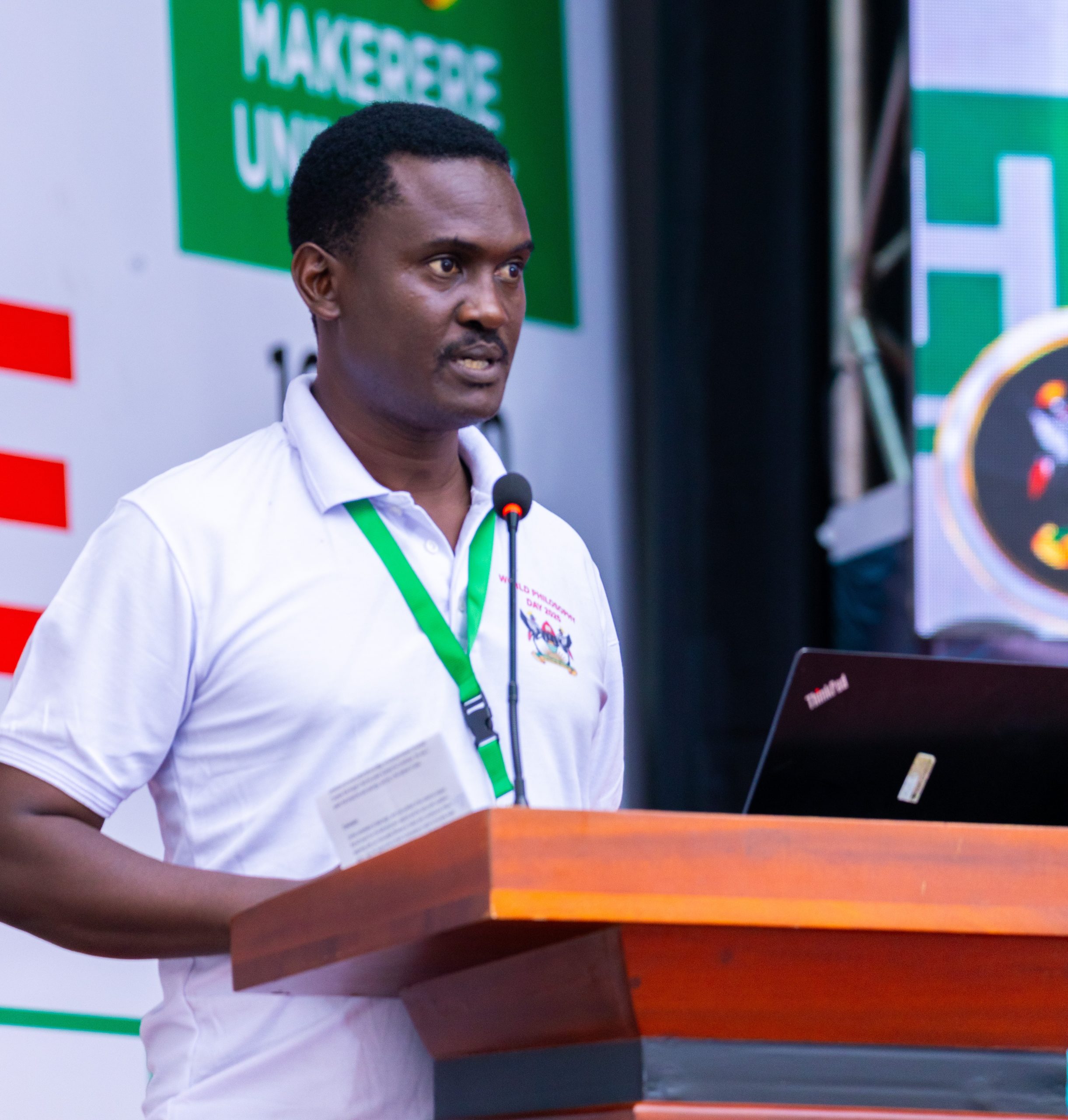
By Jane Anyango and Zaam Ssali
Communication Officers for CHUSS & School of Law

